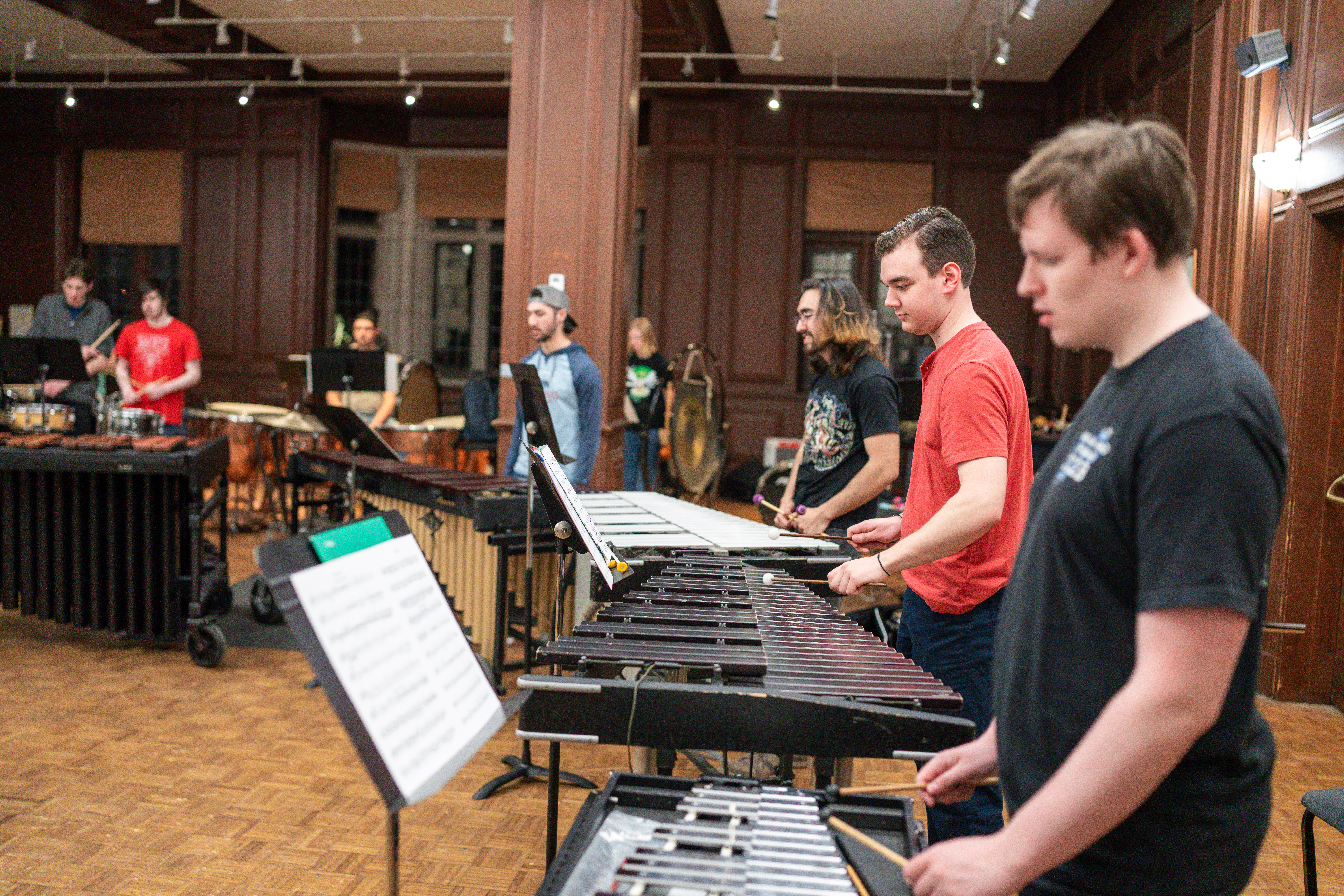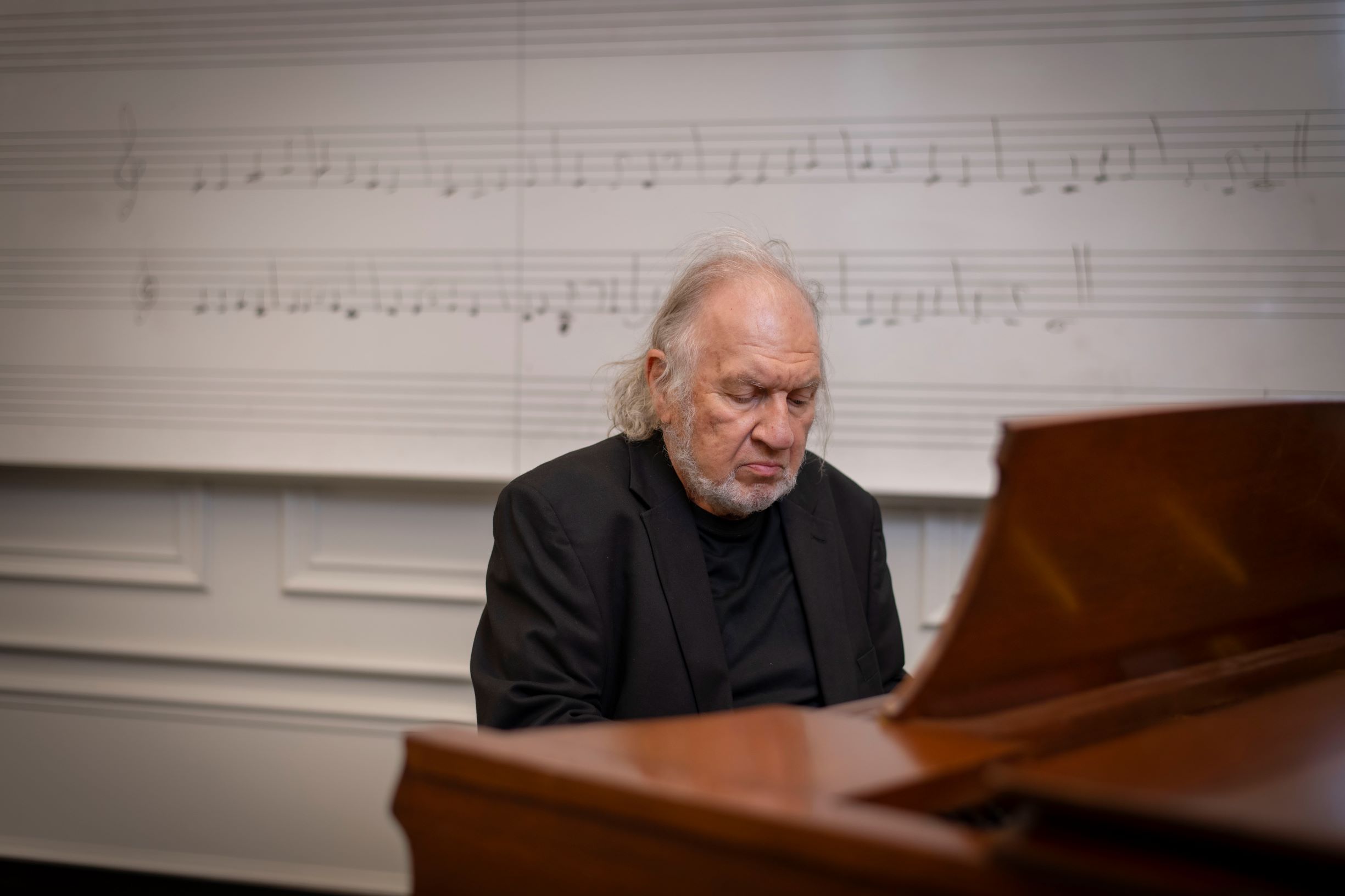“One of the main ideas is to place contemporary classical music in a different physical context,” he says, noting that a music hall might not be the best place to hear these pieces of classical linage that have a modern twist. “It’s a different environment. You can get up and move around, get a beer. It’s presented in a social context that’s more approachable.”
Throughout his musical career, Barton has played in rock bands, improvisational bands, and even spent some time listening exclusively to jazz. But he expects this performance to be different from anything else he has done. And he hasn’t had a beer created based on his music either.
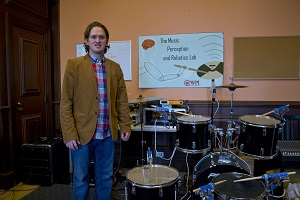 “Every time I do a show with robots, there are lots of conversations afterward,” Barton says. “Some people are interested in the technology behind the robots and some are more interested in the music and the composition.”
“Every time I do a show with robots, there are lots of conversations afterward,” Barton says. “Some people are interested in the technology behind the robots and some are more interested in the music and the composition.”
Original Gravity’s artistic director and concert curator Keith Kirchoff says the robots are something new for the series. “This is the first time we have done anything quite like this,” he says. “We are trying to represent as many different facets of modern classical composition as we can. We want to show it all and represent it all.”
If Barton finds the robots fascinating, the audience is equally taken by robots creating music and even improvising. They may not emulate the Grateful Dead’s legendary jams, but humans and robots can create improvisational music together, says Barton.
Weaving the familiar human movements with mechanical motion is complex, and Barton stresses that WPI students have played a big part in creating the robots and getting them to do what Barton wants them to do. Even with the challenging composition, Barton’s approach is specific. “I don’t try to mask the qualities of the machines, but highlight them,” he says. “Humans are great at nuances and variation. If you put the two together, you get a great contrast.”
Two of Barton’s pieces in the concert, “Rise of City” and “Water, Rhythm, and Light,” are set, predetermined pieces, so he knows what and how the robots will play. But “Cyther” is based on some improvisation as Barton will play a 10-string instrument while a robot simultaneously plays different strings on the same instrument.
Barton’s fourth performance piece, “Human/Robot Improvisation,” involves three or four humans and more than a dozen robots and is entirely improvisational. The composition has layers, so the robots can listen and respond to what the humans are doing.
“The robots can activate the strings and can find harmonies and make pitch distinctions,” says Barton. “The humans can do what they do well and the robots do what they do well. The software is programmed so the elements are not predictable.”
The robots introduce audience members to new and novel music, but Original Gravity is also attracting a whole range of people, says Kirchoff. People come to hear the music or to try new beer, but they all leave with a new appreciation for the nuances of both, he says.
On writing the software for the robot performers, Barton says composers like him have to try to interpret what he calls the sonic stream–that constant deciphering of all the noise our ears and brains hear—and build in a perception system that does the same thing in a robot. Then those are formed into the patterns humans might use. But because humans are always slightly imprecise, the time differences in how a human plays—as slight as they may be—are difficult to write into robotic software.
One of the performance pieces involves three or four humans and more than a dozen robots, and is entirely improvisational.
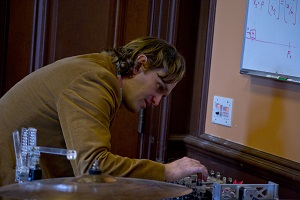 Barton compares how human musicians might riff off each other’s playing, but generally within something defined. Audiences can be pretty sure that most rock musicians aren’t going to break out into bebop but they still aren’t sure of where the music will go. “It’s difficult to get that from an algorithmic standpoint,” he says.
Barton compares how human musicians might riff off each other’s playing, but generally within something defined. Audiences can be pretty sure that most rock musicians aren’t going to break out into bebop but they still aren’t sure of where the music will go. “It’s difficult to get that from an algorithmic standpoint,” he says.
And, of course, there’s the brew parings to go with the music. With all New England–based musicians and breweries, the series highlights what’s going on in the region, according to Barton. “You get that sense of community,” he says.
Kirchoff agrees. “A lot of non-musicians find classical music unapproachable or stiff or academic,” he says. “We show them it can be relaxed and they can have a great time. This helps people enjoy the music.”
– BY JULIA QUINN-SZCESUIL
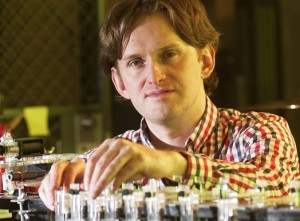
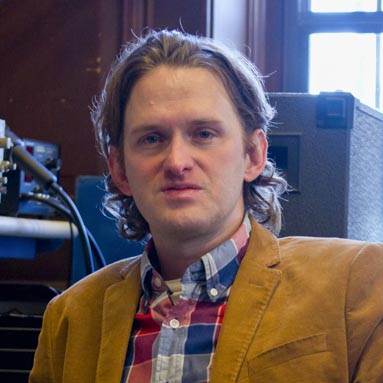
 “Every time I do a show with robots, there are lots of conversations afterward,” Barton says. “Some people are interested in the technology behind the robots and some are more interested in the music and the composition.”
“Every time I do a show with robots, there are lots of conversations afterward,” Barton says. “Some people are interested in the technology behind the robots and some are more interested in the music and the composition.” Barton compares how human musicians might riff off each other’s playing, but generally within something defined. Audiences can be pretty sure that most rock musicians aren’t going to break out into bebop but they still aren’t sure of where the music will go. “It’s difficult to get that from an algorithmic standpoint,” he says.
Barton compares how human musicians might riff off each other’s playing, but generally within something defined. Audiences can be pretty sure that most rock musicians aren’t going to break out into bebop but they still aren’t sure of where the music will go. “It’s difficult to get that from an algorithmic standpoint,” he says.